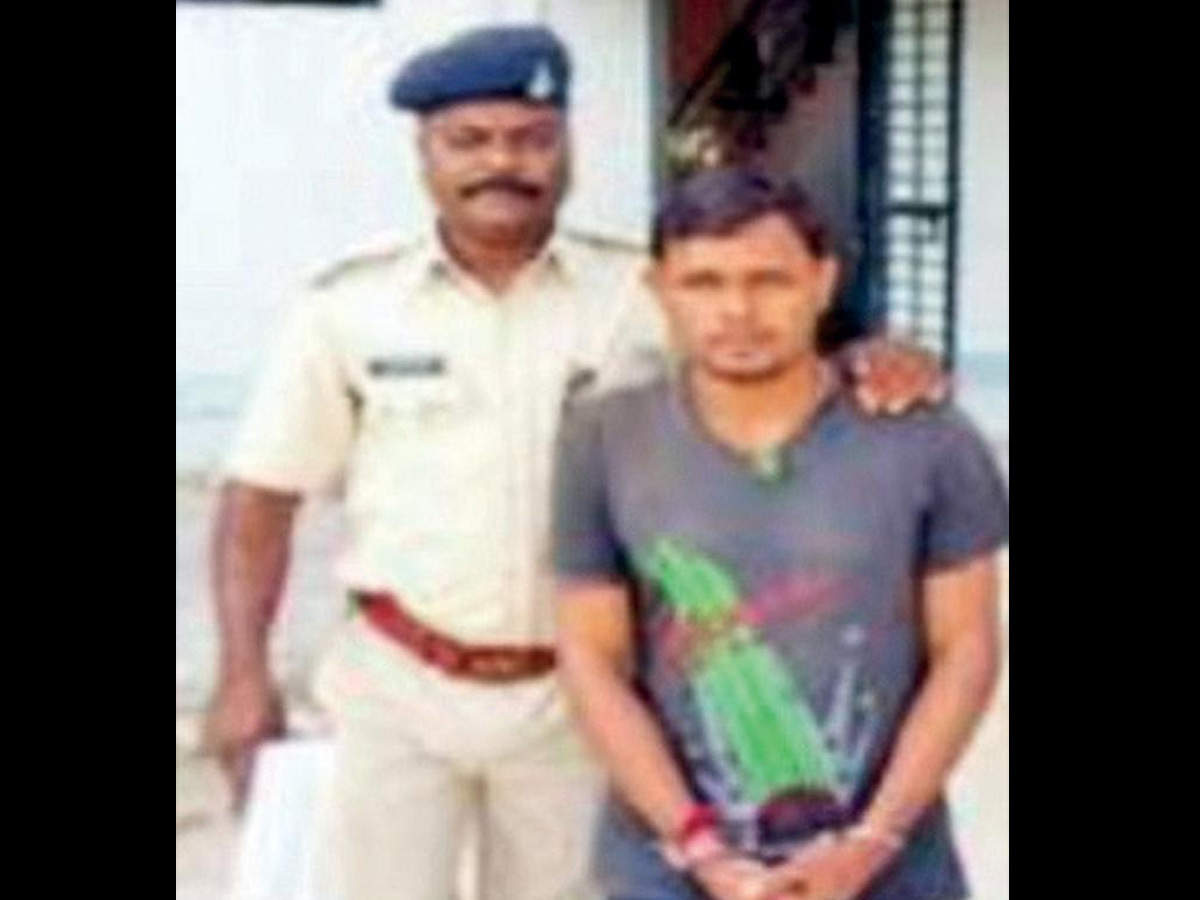TNN | Feb 21, 2019, 04.52 AM IST
AHMEDABAD: In an unusual case, the Gujarat high court on Wednesday cancelled the death penalty awarded to a man for hacking to death his parents and three-year-old-daughter, and ordered a re-trial after proper verification of whether he is sane. The high court ordered a fresh trial after noticing that the trial court did not take into consideration the accused’s insanity. During the trial, the accused, Nagjiji Thakor was being treated for bipolar disorder, a serious mental illness. The law stipulates that a trial cannot be conducted against a person of unsound mind because he cannot defend himself.
 |
| Nagjiji Thakor |
The trial court did not follow the procedure mandated by Section 329 of the CrPC, to ensure that the accused is of sound mind amd can defend himself. It went ahead with the trial and awarded the death penalty after convicting him. The high court hence directed the trial court to conduct a re-trial after establishing whether Thakor is of sound mind, said Pratik Barot, Thakor’s advocate. On the lapse by the trial court, a bench of Justice J B Pardiwala and Justice A C Rao said, “The fundamentals of the administration of justice are simple. No man should suffer because of the mistake of the court.” The HC further justified its decision to have a re-trial, “There is no higher principle for the guidance of the court than the one that no act of courts should harm a litigant and it is the bounden duty of the courts to see that if a person is harmed by a mistake of the court he should be restored to the position he would have occupied, but for that mistake.”
The high court cited various communications that took place between jail authorities with the courts and the mental hospital to conclude that Thakor was undergoing treatment because of his unruly and temperamental behaviour at the time when the trial court in Visnagar framed charges of murder against him. The HC came down heavily on the public prosecutor, the investigating officer as well as the defence lawyer provided by the legal aid service, for their failure to bringing Thakor’s mental illness to the court’s notice. It also criticized the court for being “oblivious” to this reality and said that its omission vitiated the trial and rendered the judgment unsustainable in the eyes of the law. The state government defended the death sentence by telling the HC that Thakor had not shown any signs of mental illness during the framing of charges. To this, the HC said that even if the defence advocate did not bring it to court’s notice, the court should have perused the records and ascertained the accused’s capacity to enter a defence according to Section 329 of the CrPC.
The HC further said, “The proceeding against a person of unsound mind and holding him guilty of criminal offence would be clearly violative of the guarantee contained under Article 21 of the Constitution, that no person shall be deprived of his life or liberty without following the procedure established by law.
Source: https://timesofindia.indiatimes.com/city/ahmedabad/insanity-plea-death-penalty-nixed/articleshow/68087480.cms (accessed on 29 May 2019)
No comments:
Post a Comment